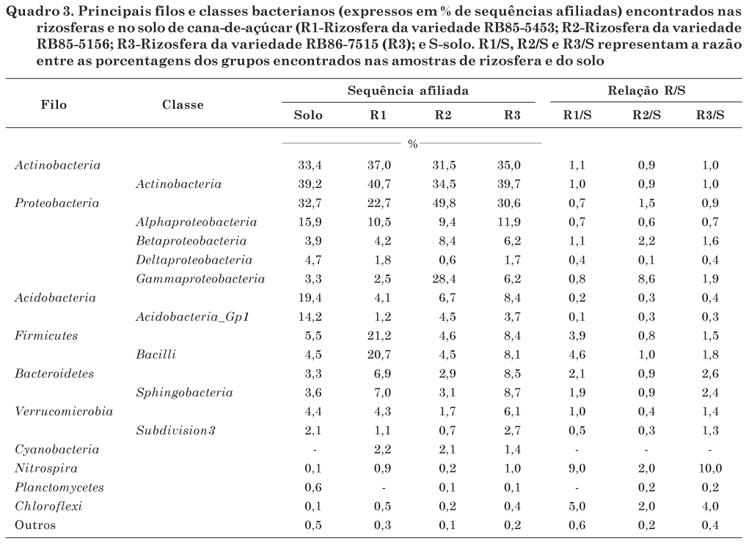Sugarcane is an extremely important crop in Brazilian agriculture. However, little is known about the structure of microbial communities associated with the soils and rhizosphere of these plants. The aim of this study was to evaluate the structure and diversity of bacterial communities associated with the soil and rhizosphere of six sugarcane varieties grown in the State of São Paulo, Brazil. Analyses were carried out based on methods not dependent on the crop, where the PCR-DGGE technique revealed alterations in the rhizosphere for the total bacteria group, and also for the Alphaproteobacteria and Betaproteobacteria groups. After that analysis, four samples (three from the rhizosphere and one from the soil) were subjected to sequencing of the V6 region of the 16S rDNA gene using the IonTorrentTM platform. This approach generated 95,812 sequences, with the prevalence of those affiliated with the phyla Actinobacteria , Proteobacteria , and Acidobacteria . Results revealed that bacterial communities in the rhizosphere are distinct from those observed in soils. It was also possible to observe a differential selection performed by plants of different varieties. Some bacterial groups exhibited lower frequencies in the rhizosphere (Acidobacteria ), while others proved to be highly stimulated by the presence of roots, in a response common to all varieties (Betaproteobacteria , Nitrospora , and Chloroflexi ), or in variety-specific responses (Bacilli and Sphingobacteria ).
cultivation-independent methods; ribosomal genes; bacterial diversity; DNA sequencing

 Differential composition of bacterial communities in the rhizosphere of sugarcane varieties
Differential composition of bacterial communities in the rhizosphere of sugarcane varieties


